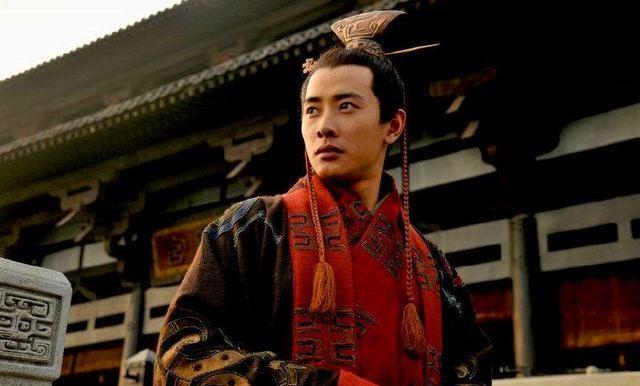Good evening friends! Ziyuan has told you many legendary experiences of the last emperor before, which has aroused the strong interest of readers, and today we will talk about the last emperor with the widest distribution of descendants.

Throughout the Chinese dynasties, there are only a few kings who can die well, either exterminated or dead, and sometimes there are not even courtiers to deal with the aftermath. However, there were also some emperors who lived a more moist life, such as Liu Chan, the lord of the Shu Han Dynasty, and Chai Zongxun, the Emperor Gong of Later Zhou. However, to say that after the fall of the country, there is still a moist life, and there can be remarkable achievements, perhaps only Liu Xie, the emperor of the Han Dynasty.
As the last emperor of the Eastern Han Dynasty, Liu Xie was always a puppet from the time he took the throne to Chan Rang, but this did not mean that he was not smart. After the Eastern Han Dynasty was forced to move the capital to Chang'an, Emperor Xian of Han secretly planned to return the capital to Luoyang. At that time, Chang'an was starving for many years, and although the imperial court often released grain to relieve disasters, many people still starved to death, so Liu Xie personally boiled porridge in the palace to calculate the amount of grain, and finally found that some people were full of private pockets, at this time Liu Xie was only 13 years old.
▲Cao Cao stills
After being held hostage by the traitor Cao Cao, Liu Xie trembled all day long, often fearing that he would be killed. However, in such a dangerous environment, he still did not give up, often conspiring with his henchmen on how to kill Cao Thief to revitalize the Han Room. After Cao Cao's death, Emperor Xian of Han was forced to cede Zen to Emperor Cao Pi of Wei, and the Han Dynasty, which lasted for more than a hundred years, came to an official end, and Liu Xie was also demoted to the title of Duke of Shanyang (山阳公, in modern Jiaozuo, Henan), and specially ordered him not to enter the capital for no reason.
Liu Xie, who was expelled from his hometown, came to Shanyangyi, and instead of getting discouraged, he began to concentrate on running his fiefdom, and he finally showed his Mingjun style when he let go of his hands and feet. Speaking of which, Liu Xie's situation was not too bad--there were 10,000 households in his feudal households, and the number was above that of the princes, and he could not be called a subject to Cao Pi, and he could not be worshiped by the edicts, and he could also sacrifice the previous emperors and heaven and earth as before.
▲ Xiuwu County Han Xian Emperor Zen Mausoleum
Because of his experience of the sufferings of the people, Liu Xie often visited the localities, reduced taxes, and used his clever medical skills for free to diagnose and treat the people, which was widely loved by the locals. Because of his leisure, Liu Xie, who had a good attitude, lived 8 years longer than Cao Pi, and after his death, hundreds of people spontaneously guarded his tomb, crying and crying, and the locals looked sad for months. Because of his benevolence, he was not visited by tomb robbers for the next two thousand years. Having such a great honor behind him is a great achievement.
In addition, Liu Xie, fearing that Cao Pi would exterminate the remnants of the Han Dynasty, demanded that all the other descendants, except for liu Kangyi, the eldest grandson of the eldest grandson, go to various places to hide, and have been passed on as family training ever since. In the tenth year of Taikang (289 AD), Liu Azhi, the grandson of Liu Xiexuan, led more than 2,000 people, including family members, clansmen, retinues, and craftsmen, to cross the Kingdom of Wu. Just over a decade after everyone crossed to the east, the Principality of Shanyang collapsed, the Western Jin Dynasty failed to preserve, and the Central Plains entered a turbulent era.
▲Images of Tokyo King and Achio
For the extremely backward Uighur state at that time, the craftsmen brought by Liu Azhi played an important role, and Emperor Yingshen was very grateful for this, saying that Liu Azhi and his sons were "King of Azhi" and "King of Duhe" respectively, and were crowned as "Eastern Han Envoys", and his descendants took "Eastern Han" as their surnames. Although the Liu Azhi family came from overseas, they were treated with courtesy by the entire country because of the han dynasty's high status in the hearts of the Uighurs. Later, Liu Azhi's great-grandson, The Eastern Han Dynasty, intermarried with the imperial family, and had three sons, Sakaue, Dazang and Neizang, and these three brothers gradually developed into three large families, all of which were very prominent.
The Shang family (formerly known as the Eastern Han Dynasty) once had members who served as "Great Generals of Zhengyi", held military power, and evolved surnames such as Tanba; the Daizo family had long held financial power, and their descendants included Harada, Takahashi, and Potojiang, and several of them also served as lords of the city. The Uchizo family was always in charge of internal affairs, which became the source of the name of the japanese Ministry of the Interior. Although it has been a thousand years since Liu Azhi's eastern crossing, and many of their descendants have moved to various countries, they still remember that their ancestors came from China, and they are proud to be descendants of the Han Dynasty, and have built many "Han Taigong Temples" and "Azhi Palaces" in the settlement area. And all this is obviously due to Liu Xie's foresight at that time.